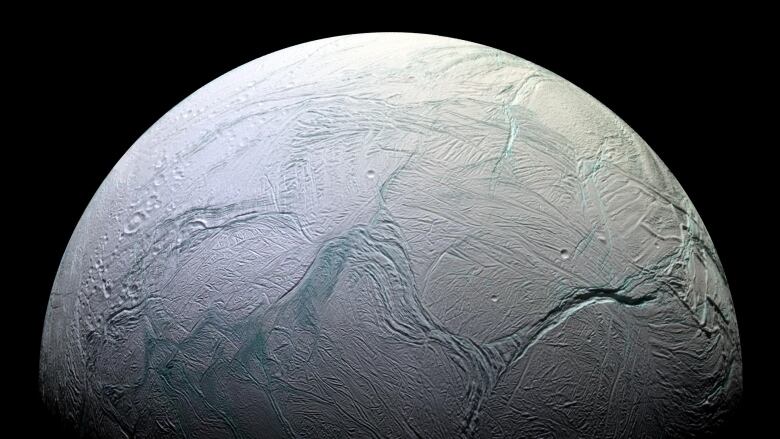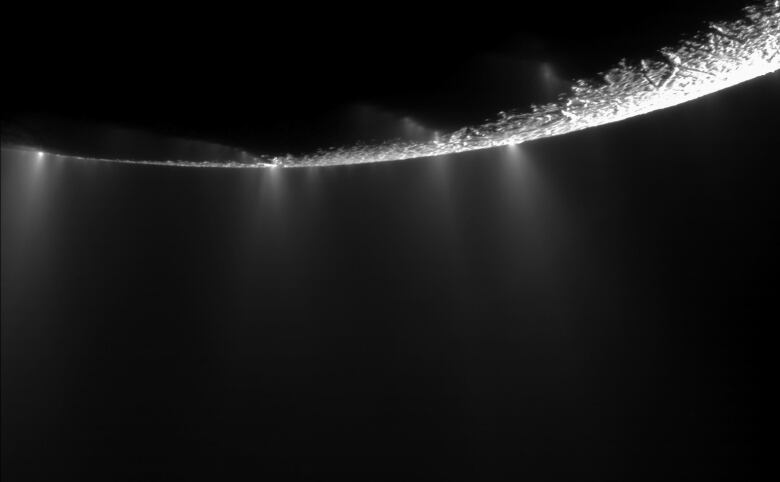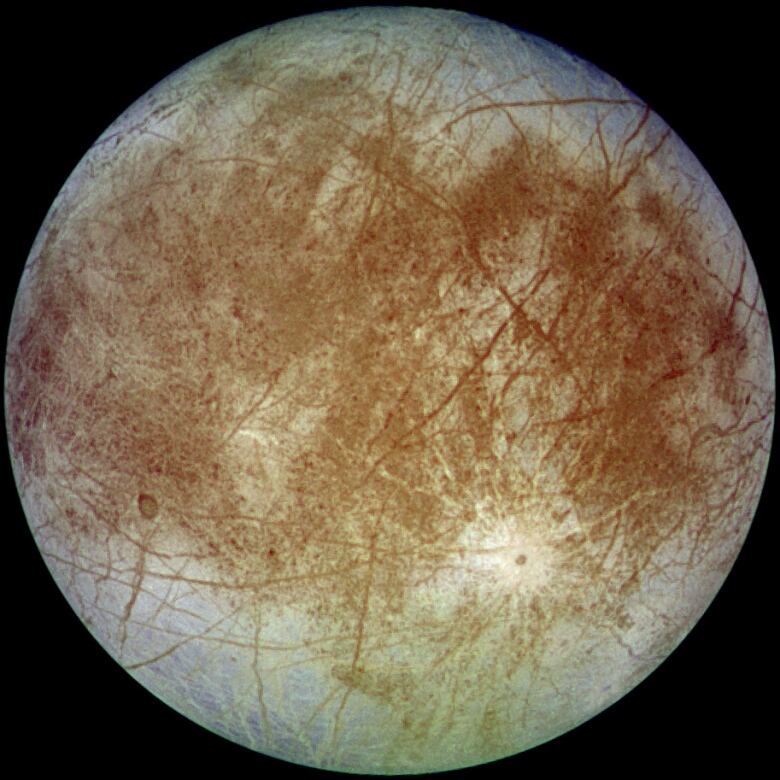NASA reveals new data on 'ocean worlds' in our solar system
2 moons in our solar system hold watery oceans beneath their icy crusts

Looking for life in the universe? We may not need to look any further than Saturn.
On Thursday, NASA announced that the icy moon of Saturn, Enceladus, holds a "food source" for potential life.
Not only that, but it's believed that Jupiter's moon Europa another icy world is also spewing water vapour into space.
(This is an older version of the story. You can read about the new findings here.)
Though Earth is thought of as having the most abundant water in our neighbourhood, recent research has found that some moons could contain their own oceans, hidden beneath their icy crusts. Enceladus holds the most water in our solar system.
- Canadian researchers create first map of universe's dark matter
- Building blocks of life found on dwarf planet Ceres
- 7 Earth-like planets found orbiting star 39 light-years away
Enceladus is one such moon. Thesmall, icy world in orbit around Saturn is believed to have an ocean of water beneath its icy crust.
Images from Cassini, the NASA spacecraft that's been in orbit around Saturn since 2004, have captured plumes of water vapour spewing into space. When the spacecraft flew through the plumes, it detected organic material,carbon dioxide and carbon monoxide.

Another world with an ocean is one of Jupiter's moons, Europa. In September, NASA spotted plumes of water vapour erupting from the surface. It's believed that a warm, salty ocean exists beneath its icy surface.
NASA has planned a mission to the moon, called the Europa Clipper. It had proposed a landing mission, but it was cancelled in U.S. President Donald Trump's proposed budget.

While both moons are too far away to receive any direct warming from the sun, it's believed they are heated by the squeezing as they orbit their massive planets.
Both of these moons are two of the best candidates for life in our solar system.
A media briefing will be held at 2 p.m. ET Thursday in the James Webb Auditorium at NASA headquarters in Washington, D.C.












_(720p).jpg)


 OFFICIAL HD MUSIC VIDEO.jpg)
.jpg)



























































































